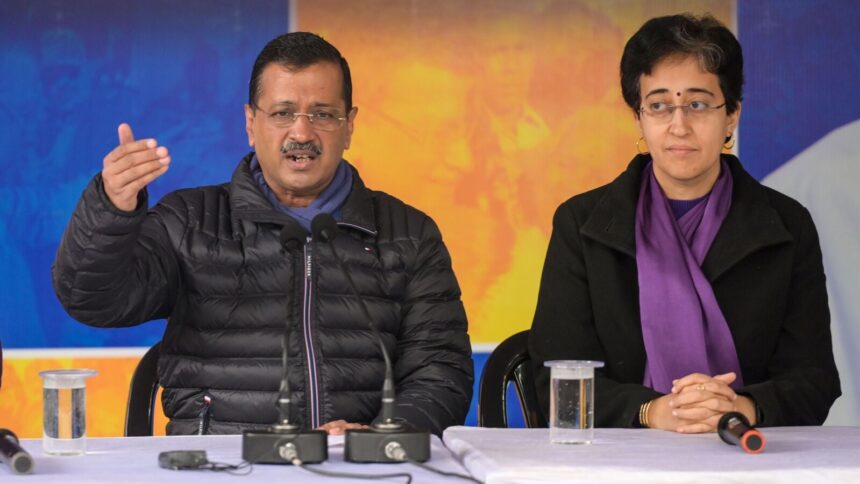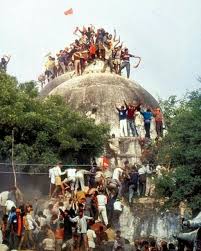Exploring the Political Tug-of-War: Arvind Kejriwal vs. the BJP
The political landscape in India is known for its intensity and drama, especially within the National Capital Territory, Delhi. Recently, Arvind Kejriwal, the convenor of the Aam Aadmi Party (AAP) and former Chief Minister of Delhi, penned a provocative letter to RSS chief Mohan Bhagwat. This correspondence has stirred the political waters, igniting a fiery response from the Bharatiya Janata Party (BJP).
The Contentions of the Letter
In his letter, Kejriwal accused the BJP of various electoral malpractices, including the distribution of money to buy votes and the systematic undermining of Dalit and Purvanchali votes in Delhi. He questioned the RSS about their stance on these electoral tactics, asking whether they believed such practices were conducive to a healthy democracy. This bold move illustrates the AAP’s strategy of challenging the BJP’s moral standing while highlighting the erosion of democratic values, a narrative increasingly relevant in Indian politics.
Kejriwal’s concerns are not unfounded. Allegations of vote manipulation are rampant among political parties in India, and the assertion that BJP leaders are using illegal means to influence elections is a serious one. He cited specific instances, including claims made by AAP spokesperson Priyanka Kakkar regarding attempts by BJP leader Vishal Bharadwaj to manipulate voter lists in the Shadara constituency, alleging that he sought to delete voters from the rolls.
BJP’s Response: A Counter-attack
The BJP’s reaction was swift and severe. Party spokesperson Sudhanshu Trivedi dismissed Kejriwal’s accusations as an attempt to gain media attention and taught the AAP leader to “learn from the Sangh” instead of writing to its chief. The Delhi BJP president, Virendra Sachdeva, engaged in personal attacks, stating that Kejriwal lacked the status to approach the RSS chief and urged him to apologize to the people of Delhi for allegations against the BJP.
Additionally, Sachdeva accused Kejriwal of taking money from “terrorists” in Canada, suggesting that AAP’s critique of the BJP was a diversion from its own failings. The accusation indicates an increasingly hostile political atmosphere, where personal attacks and counterclaims proliferate.
Contextualizing the Political Landscape
This exchange occurs against a backdrop of heightened electoral competition in Delhi, where both the AAP and BJP are vying for dominance. AAP, once heralded for its innovative policies and focus on governance, is now facing the arduous task of maintaining its foothold in the face of allegations and counter-allegations that threaten to overshadow its achievements.
Moreover, the deep-rooted socio-political dynamics, especially concerning Dalit and Purvanchali communities, add layers of complexity to the electoral battleground. Both parties are keenly aware of the voting patterns and preferences of these communities, making the stakes ever higher as they traverse the political chessboard.
Implications for Indian Democracy
The current animosity and finger-pointing reflect broader concerns about democracy in India. Accusations of vote-buying, manipulation, and erosion of democratic values point toward a troubling trend that threatens the integrity of the electoral process. It raises critical questions about accountability and the moral foundations of political parties.
As Kejriwal and the AAP continue to challenge the BJP’s practices, it remains to be seen whether these challenges will resonate with voters or simply further polarize the political landscape. Voter trust is pivotal, and the extent to which each party can demonstrate integrity and genuine concern for democratic values will play a critical role in shaping the future of politics in Delhi and beyond.
Conclusion
Arvind Kejriwal’s letter to the RSS chief highlights the intense rivalry between the AAP and the BJP and serves as a reminder of the complicated and often fraught nature of Indian politics. Amidst accusations and counter-accusations, it is the electorate that ultimately bears the brunt of these high-stakes confrontations. As the political landscape evolves, staying informed and critically assessing the claims made by both sides is vital for the health of democracy in India. The coming days and months will likely yield further developments in this ongoing saga as both parties gear up for electoral battles ahead.










